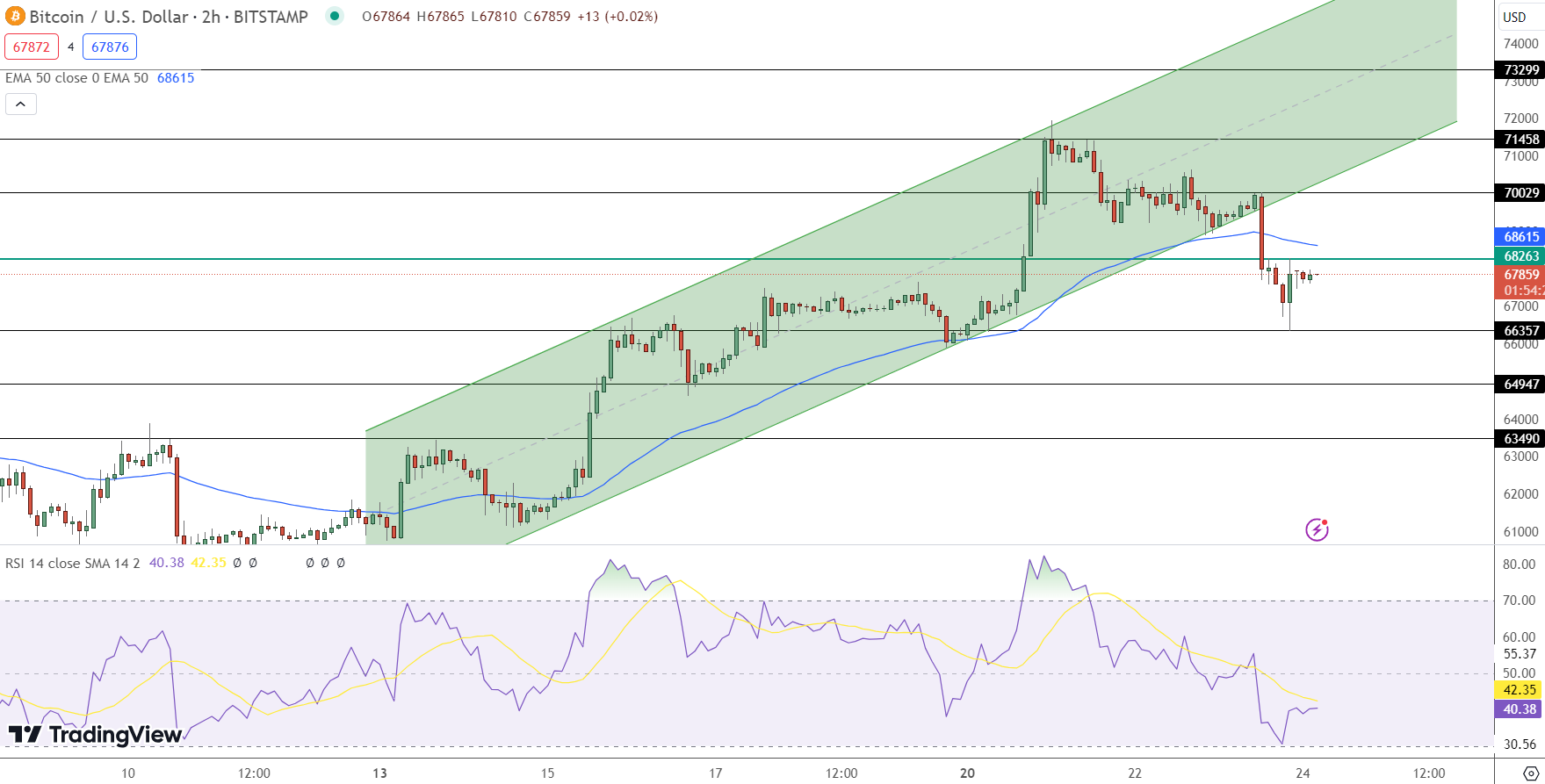As Bitcoin tumbles following the SEC’s approval of ether ETFs, market analysts are closely monitoring the next key levels. Bitcoin’s price prediction indicates a potential bullish trend, with BTC/USD currently trading at $69,042.
This update explores the pivotal support and resistance levels, providing insights into the future movements of Bitcoin amidst the shifting regulatory landscape.
SEC Approves Rule Change for Ether ETFs
The SEC has approved a rule change to allow the creation of exchange-traded funds (ETFs) that invest in ether, one of the largest cryptocurrencies. This decision follows the recent success of bitcoin ETFs, which have seen net inflows surpassing $12 billion. The approval comes just in time, aligning with the SEC’s deadline for the VanEck Ethereum ETF decision.
The SEC has approved a rule change Thursday that would pave the way for ETFs that buy and hold #ether.$ETH https://t.co/qgBajWyMLb pic.twitter.com/IE0PGKNceA
— Neil Sethi (@neilksethi) May 23, 2024
Companies that sponsor bitcoin ETFs, such as BlackRock, Bitwise, and Galaxy Digital, are also starting the process to launch ether ETFs. However, the SEC’s rule change does not guarantee immediate launches, as it only approves the applications from exchanges to list eight different ether funds. The actual launch dates remain uncertain.
Key Points:
- Ether prices rose 2% following the SEC’s decision, after a 20% surge earlier in the week.
- The SEC’s order approves the listing of eight ether funds but does not set launch dates.
- Initial ether ETFs are expected to be smaller than bitcoin ETFs, with the Grayscale Ethereum Trust holding about $11 billion in assets.
The approval suggests a potential easing of the SEC’s stance on cryptocurrencies, particularly following the agency’s loss in a lawsuit against Grayscale in 2023. This legal outcome paved the way for the approval of bitcoin ETFs and now ether ETFs. Despite this progress, the SEC’s regulatory approach to crypto remains under political scrutiny.
Ether, the second-largest cryptocurrency, underpins the Ethereum network, which facilitates decentralized finance (DeFi) projects, nonfungible tokens (NFTs), and asset tokenization. However, the new ether ETFs in the U.S. may exclude staking, as the SEC views staking-as-a-service offerings as unregistered securities. This exclusion could reduce the attractiveness of ether ETFs compared to bitcoin ETFs.
Richard Kerr from K&L Gates highlighted that the approval does not apply to other crypto projects on the Ethereum network. Steven Lubka from Swan Bitcoin pointed out that ether ETFs might experience lower demand due to structural differences, such as the lack of staking options.
The approval of ether ETFs marks a notable development in the regulatory landscape for cryptocurrencies, signifying the increasing integration of digital assets into mainstream financial products.
Disclaimer: The text above is an advertorial article that is not part of Cryptonews.com editorial content.

